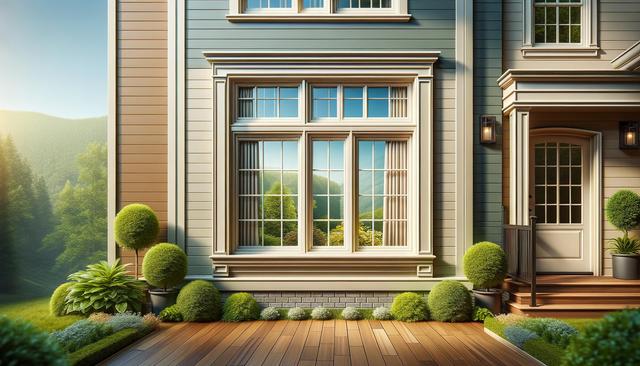Why Window Replacement Matters
Window replacement is more than just a cosmetic upgrade. It plays a vital role in home energy efficiency, comfort, and long-term cost savings. Aging or damaged windows can lead to drafts, water leaks, and increased energy bills. When windows no longer provide proper insulation, your heating and cooling systems have to work harder to maintain a consistent indoor temperature. This not only drives up energy costs but also shortens the lifespan of your HVAC system.
Modern windows are designed with advanced materials and technologies that offer better insulation and reduce air infiltration. Features such as double or triple glazing, low-emissivity (Low-E) coatings, and insulated frames help minimize heat transfer. As a result, homeowners experience more stable indoor temperatures and reduced reliance on artificial heating or cooling. In the long run, these improvements translate into noticeable savings on utility bills.
Choosing the Right Type of Window
There are several types of windows available, each offering unique benefits depending on your home’s design and your specific needs. Common window styles include:
- Double-hung windows: Offer ventilation from both the top and bottom and are easy to clean.
- Casement windows: Hinged at the side and open outward for maximum airflow.
- Sliding windows: Move horizontally and require less space, ideal for compact areas.
- Picture windows: Fixed panes that offer unobstructed views and excellent natural light.
- Bay and bow windows: Extend outward, adding space and architectural interest.
When selecting a window type, consider factors such as ventilation, ease of maintenance, and the amount of natural light you want in the room. Matching the window style to your home’s architecture can also boost curb appeal and add to the property’s value.
Energy Efficiency and Environmental Impact
One of the most compelling reasons to invest in window replacement is the potential for improved energy efficiency. High-performance windows reduce the transfer of heat during summer and retain warmth during winter, making your home more comfortable year-round. These windows often come with certifications such as ENERGY STAR, indicating that they meet or exceed energy efficiency standards.
Reducing energy consumption is not only financially beneficial but also environmentally responsible. Less energy use means fewer greenhouse gas emissions from power plants, contributing to a lower carbon footprint. Additionally, many modern window materials, such as fiberglass and vinyl, are recyclable and have a longer lifespan than older materials, making them a more sustainable choice.
Cost Considerations and Long-Term Value
Window replacement can be a significant investment, but it often pays off over time. The cost varies depending on the type of window, the materials used, and the complexity of the installation. However, homeowners typically see a return on investment through:
- Lower heating and cooling bills
- Increased home resale value
- Reduced maintenance and repair costs
- Potential tax credits or rebates for energy-efficient upgrades
It’s also worth noting that poorly installed windows can negate many of these benefits. Therefore, working with experienced installers and choosing high-quality materials is essential to ensure the longevity and performance of your new windows.
When Is the Right Time to Replace Windows?
Knowing when to replace your windows can help you avoid unnecessary discomfort and energy loss. Some common signs that it may be time for a replacement include:
- Visible damage such as cracks, rot, or warping
- Increased energy bills without changes in usage
- Drafts or difficulty opening and closing the windows
- Condensation between panes indicating seal failure
If you’re experiencing any of these issues, it may be worth scheduling an inspection. A professional can assess the condition of your windows and recommend appropriate solutions. Planning the replacement during milder seasons, such as spring or fall, can also simplify the installation process and minimize disruptions.
Conclusion
Window replacement is a practical upgrade that offers both immediate and long-term benefits. From improving energy efficiency and indoor comfort to enhancing the aesthetic appeal of your home, new windows can make a noticeable difference. Whether you’re dealing with drafts, high utility bills, or simply outdated designs, investing in modern, high-quality windows is a step toward a more comfortable, cost-effective, and environmentally friendly home.




Leave a Reply